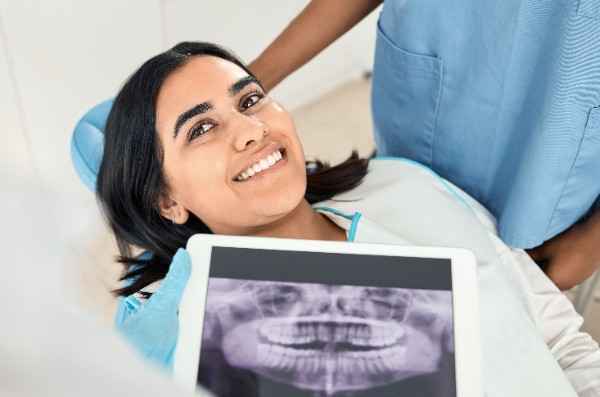healthcare

July 02,2025 • 6 min read
When Over-the-Counter Pain Relief Isn’t Enough in Bridgend

When dental pain strikes, most people reach for paracetamol or ibuprofen hoping the discomfort will fade. And often, it does for a little while. But what happens when that quick fix stops working? Over-the-counter medication can mask symptoms, but it doesn't address the root of the problem. For those in Bridgend, persistent or severe dental pain is a clear sign to seek professional help. That’s where an emergency dentist in Bridgend comes in. Alongside preventive care from a trusted hygienist in Bridgend, prompt treatment ensures short-term relief doesn’t turn into a long-term crisis. Let’s explore when to stop self-medicating and start acting.
Understanding When Pain Relief Isn't Enough
Painkillers are excellent for managing temporary discomfort. However, when pain persists or intensifies, they can become a crutch hiding a bigger issue that needs direct treatment.
Signs that pain relief is no longer working:
- You need higher doses to feel any effect
- Pain returns quickly after medication wears off
- Discomfort worsens over time
- You feel pain even while resting or sleeping
- Other symptoms appear (swelling, bleeding, sensitivity)
Over-the-counter solutions are not a cure. If you're experiencing these signs, it’s time to see an emergency dentist in Bridgend before things get worse.
Why Dental Pain Should Never Be Ignored
Dental pain is your body’s way of waving a red flag. Unlike muscle aches or headaches, oral pain is usually a sign of an underlying issue such as decay, infection, trauma, or gum disease.
Common causes behind persistent dental pain:
- Tooth decay or deep cavities
- Cracked, chipped, or broken teeth
- Infections or abscesses
- Impacted wisdom teeth
- Failing fillings or dental work
Relying on painkillers only delays treatment and increases your risk of complications. It’s best to contact a qualified emergency dentist in Bridgend for accurate diagnosis and immediate care.
What Happens When You Delay the Dentist Visit
Many people tolerate pain longer than they should, either due to fear, cost concerns, or busy schedules. But the consequences of waiting can be serious even dangerous.
Possible outcomes of delaying treatment:
- Spread of infection to surrounding tissue or bone
- Tooth loss requiring expensive replacement
- Damage to adjacent teeth or gums
- Facial swelling or abscess formation
- Difficulty eating, sleeping, or concentrating
Dental infections can even spread to other parts of the body if not treated in time. Timely intervention prevents such escalation and restores comfort far more effectively than pills ever could.
How a Hygienist in Bridgend Helps You Stay Ahead
While a hygienist doesn’t treat emergencies, their role is key in preventing them. With routine visits, your hygienist in Bridgend can catch early signs of decay or gum problems before they become painful.
Benefits of regular hygienist visits:
- Deep cleaning to remove tartar and plaque
- Early detection of gum disease
- Monitoring for enamel erosion or receding gums
- Personalised oral hygiene advice
- Fresher breath and stain removal
- Reinforcing daily dental care habits
By keeping your mouth in top shape, your hygienist acts as the first line of defence against conditions that later cause emergencies.
The Link Between Dental Pain and Overall Health
Dental pain rarely exists in isolation. In many cases, it can be a symptom of larger health issues or even trigger them if ignored for too long. For example, untreated infections in the mouth can travel to other parts of the body, including the heart, through the bloodstream.
Here’s how dental health affects your overall well-being:
- Gum disease is linked to cardiovascular conditions
- Infections can weaken your immune system
- Chronic oral inflammation can worsen diabetes
- Severe pain may disrupt sleep and cause fatigue
- Poor oral hygiene may contribute to respiratory infections
Prompt attention from an emergency dentist in Bridgend is about more than saving a tooth it's about safeguarding your whole health. Meanwhile, consistent cleanings from your hygienist in Bridgend support this preventive approach.
How to Build a Dental Emergency Action Plan
Most people have a plan for medical emergencies, but few prepare for dental ones. Taking a few simple steps can reduce panic and get you faster treatment when pain strikes unexpectedly.
What to include in your dental emergency kit or plan:
- Keep your dentist's contact details saved on your phone
- Know the location and opening hours of your emergency dentist
- Stock basic supplies: salt, gauze, painkillers, cold pack
- Educate your family on what qualifies as a dental emergency
- Maintain regular appointments with your hygienist in Bridgend
Being prepared reduces fear and speeds up recovery whether it’s a chipped tooth, swelling, or a painful infection. Early intervention always leads to better outcomes.
Table: When Painkillers Work vs. When You Need a Dentist
|
Dental Situation |
Short-Term Relief with Painkillers |
Needs Professional Dental Care |
|
Mild sensitivity to hot/cold drinks |
Yes |
Only if it persists or worsens |
|
General discomfort after dental work |
Yes |
If pain lasts more than 3–5 days |
|
Throbbing pain in one tooth |
No |
Requires immediate check-up |
|
Swollen jaw or gums |
No |
Possible infection – urgent care needed |
|
Knocked-out or broken tooth |
No |
Emergency dental restoration necessary |
|
Bleeding gums when brushing |
Yes |
See hygienist if consistent |
Managing Pain Until Your Appointment
Sometimes, you may need to wait a few hours before your emergency appointment. While you wait, here are some home-based strategies to reduce discomfort but remember, these are temporary:
Ways to ease pain at home:
- Rinse gently with warm salt water to cleanse and soothe
- Apply a cold compress on the outside of the cheek
- Avoid extremely hot, cold, or sugary foods
- Take paracetamol or ibuprofen (as directed)
- Sleep with your head elevated
- Avoid chewing on the affected side
These steps help you cope, but they do not replace the need to see a hygienist in Bridgend.
Steps to Prevent Future Dental Emergencies
Preventive care is the smartest investment in your oral health. By building a good hygiene routine and sticking to regular check-ups, you can reduce your risk of pain and urgent dental visits.
Your preventive checklist:
- Brush twice daily with fluoride toothpaste
- Floss or use interdental brushes every day
- Reduce sugary snacks and acidic drinks
- Avoid chewing on hard items like pens or ice
- Wear a mouthguard for contact sports
- Visit your dentist and hygienist in Bridgend every six months
Staying proactive is the best way to avoid needing emergency treatment in the first place.
Conclusion
Over-the-counter painkillers may provide temporary comfort, but they should never replace professional dental care. For residents of Bridgend, severe or recurring pain means it's time to stop self-treating and start seeking real solutions. A trusted emergency dentist in Bridgend can pinpoint the cause of your discomfort and provide long-lasting relief. Meanwhile, consistent care from a hygienist in Bridgend will help you avoid future issues before they begin. When discomfort lingers, don’t wait for it to become unbearable take action early. EDP Group is here to ensure that your dental pain ends with safe, expert, and timely care.
DentalHygiene Details
User Profile
- Full name
- DentalHygiene
- Email address
- hello@hyahygienistappointment.co.uk
- Join Date
- 2025-07-02
- State
- City
- Pincode
- Address
- Follow us on Facebook
- Follow us on Twitter
- Website Name
- Bio